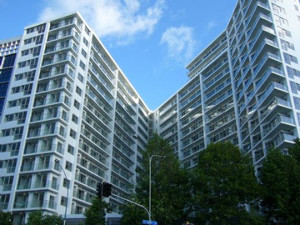Knight Frank’s latest Wealth Report uncovers the trends.
Location, location, location is the war cry of real estate agents and property developers the world over.
But David Hutton, development managing director at Lendlease, one of the world’s biggest developers, thinks the Covid-19 pandemic may have shifted the dial.
“In many respects, the old mantra is starting to change, to focus on three new elements – connectivity, amenity and place,” says Hutton.
“The role of the places where people spend their work time, their leisure time and indeed their home life is increasingly important. I think the pandemic will strengthen the desire for quality places.”
One expression of this that has grown in prominence during the past 12 months is the concept of the 15-minute city. This means people only going to amenities within 15 minutes of their homes.
Hutton says there will be more focus on such ideas, at least to an extent.
“The 15-minute city, or the 15-minute community, is really about access to amenity and connectivity. But I don’t think the pandemic means people will only ever want to venture within 15 minutes of their homes.”
He says once it’s safe to do so, there will be a real desire among people to travel and mix. However, Hutton says the pandemic has increased the desire for greater amenity and that will lead to more mixed-use development.
“There will be more district centres, and more emphasis on place and the quality of ground plans.”
Missed space
Space is probably the one amenity most missed by urban dwellers during lockdowns. This leads many to look for a new home in the countryside or coast. But Hutton isn’t convinced people will move out of cities en-masse as a result of the pandemic.
“In terms of sustainability, transport and climate change, we cannot really afford to move people back into the countryside, and economically I think the world has proven that does not work either.
“I believe the role of the city will in fact become more important.”
Hutton says there will be a lot more of the natural environment coming into cities. And proactive governments and developers will want to bring green into the cities to ensure there is ample open space.
“To quote one simple fact, most of the world’s cities are made up of about 25% roads.
“Given where the world is going in terms of technology and driverless vehicles, a fantastic opportunity exists to replace a lot of hardscape, asphalt and quite harsh environments with more landscaped areas and green space for people to enjoy.”
Few people buy or lease space based on just the building alone. Hutton thinks the environment, ground plan, public realm and amenities that sit outside the actual building are critically important.
“For example, at Elephant Park in London the final stages of a major new park that’s going to be at the centre of the community is being finished.
“In a post-Covid world that will be more valued than ever. Even if people live in higher density communities, they will still have access to green space.”
Sanctuaries
Noeyy Hyun Park, Wonyang Architects & Engineers vice-president, says the pandemic has had a profound impact on his approach to design.
“The most fundamental purpose of architecture is to enrich human life and to protect it from possible outside dangers.”
At the most basic level, the pandemic has highlighted the importance of hygiene and safety. And new technology such as facial recognition has come to the fore.
For Charu Gandhi, founder of interior design studio Elicyon, the pandemic has made people think more about parts of their home that don’t usually get too much design attention.
“Service or second entrances in homes are generally ignored, but now international clients want a zone which is separate from the rest of the house where they can store incoming produce, wash their hands or change their clothes.
“They are also using more materials thought to have anti-viral properties, such as copper and brass.”
Lockdowns have also created new challenges for families.
“The pandemic has clearly taught us that there should be more consideration for the needs of privacy and mutual communication between residents from the beginning of the residential design process,” says Park.
Sound-proofing is top of the list for many clients, says Gandhi.
“A lot of people are on the move so much they hadn’t realised how noisy family life can be when everybody is at home for so much more of the time.”
Park says Covid-19 has forced people to recognise home as a space where personal life and business are blended.
“Now, a prime residence in the centre of the city needs to satisfy not just those spending their after-work hours on the living room couch, but also those spending the majority of their time there and using the entire house.”
Absence makes the heart grow fonder, says Mia Kitsinis of boutique interior designer Accouter, who is seeing more demand for biophilic – bringing the outdoors indoors – designs.
“Last year, people spent a substantial amount of time indoors and are doing so this year too.
“Clients have missed spending time outside, so the main focus in interiors has been on bringing the outside into our living spaces, making sure the air we breathe is fresh and full of oxygen.”
This craving for an oasis in the city and for a greater connection to the outside world has also inspired Park.
In his firm’s latest project a terrace design has been incorporated into every apartment, successfully realising more open space, while keeping privacy for residents.




 Search
Search
